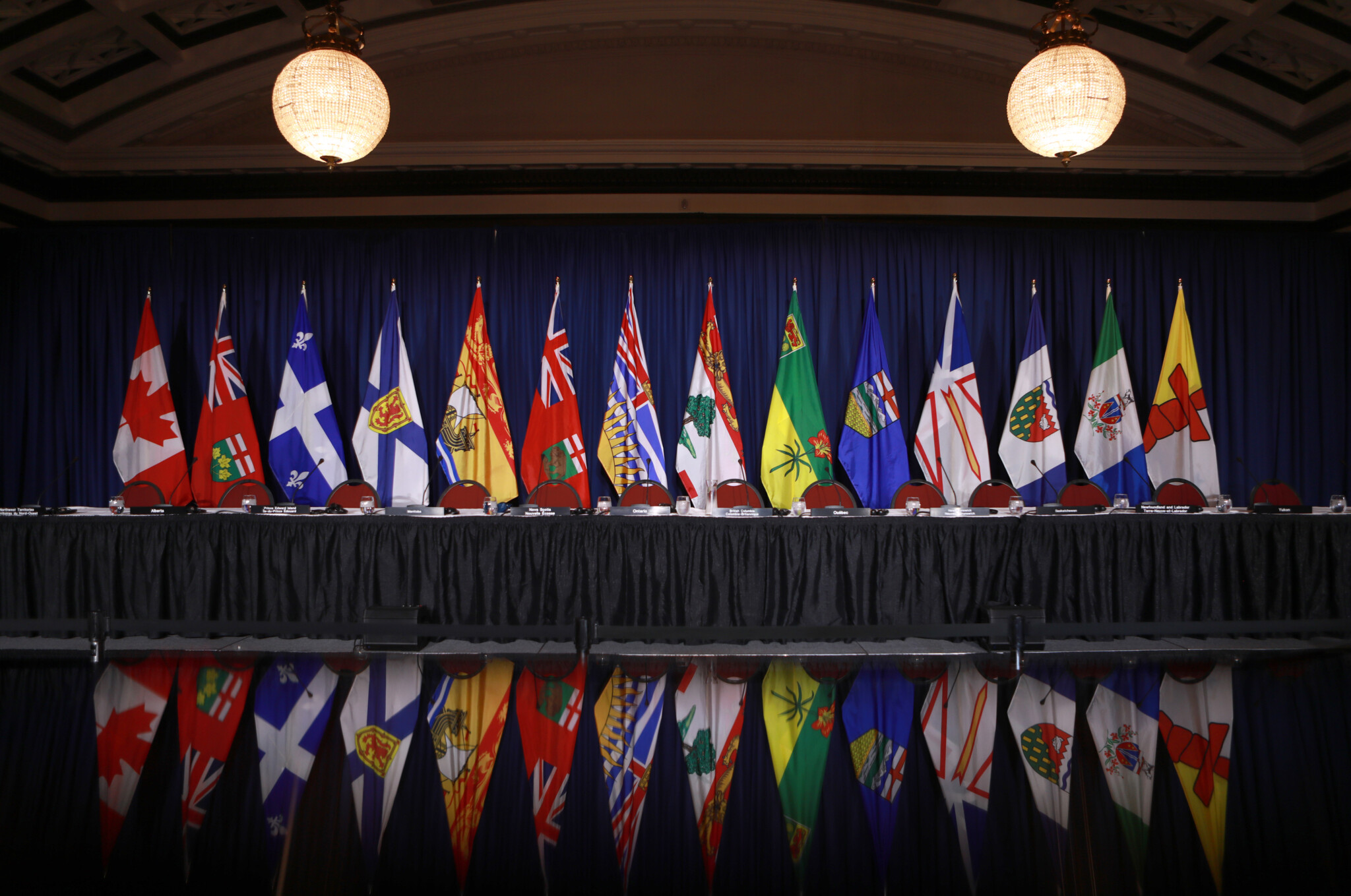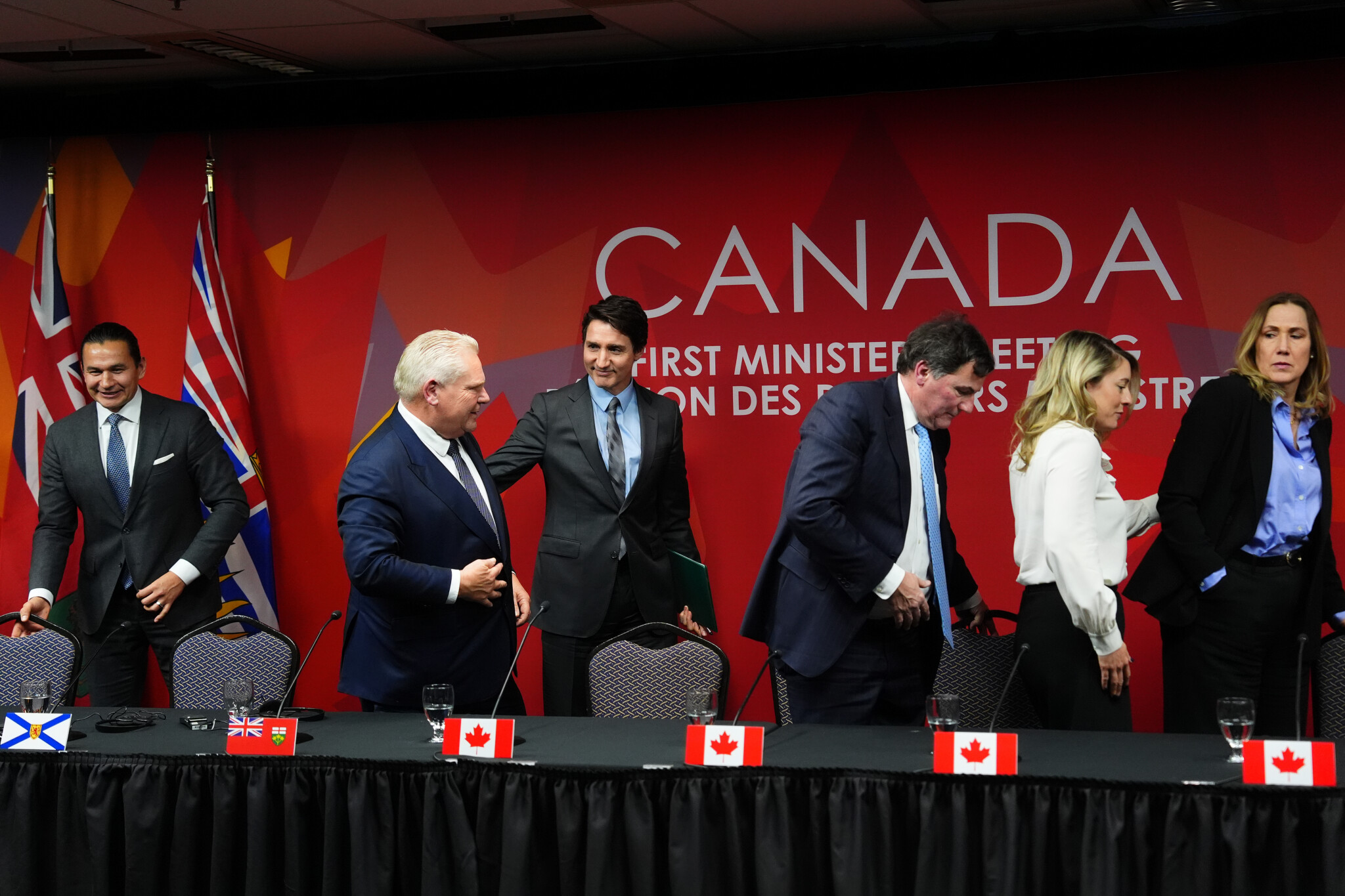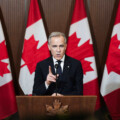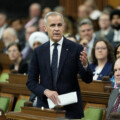The last week or so has been pretty disheartening for those of us who have been hoping for a slow swing of the Overton Window back towards the centre after a decade of reckless, hard-left federal leadership. As the country braces for the inauguration of Trump 2.0 and the possible future implementation of potentially devasting tariffs, we have seen Canada’s true colours revealed in all their petty ugliness.
In retaliation for any Trumpian tariffs, the mainstream media, provincial premiers, and our inept federal leadership have been floating the idea of using an export ban or tax on energy to preserve the economies of Ontario and Quebec. Predictably, Alberta has objected to being asked to bear the brunt of the economic pain. And perhaps just as predictably, Justin Trudeau and others have excoriated Danielle Smith for failing to “put Canada first.” The implication is clear: the national interest is indistinguishable from the central Canadian interest.
An objective observer might conclude that the national interest would in fact be served by supporting the industry that accounts for—by a wide margin—Canada’s largest export industry, which enables the payment of billions of dollars annually in equalization to the rest of the country, which is among the most responsible global producers of products that are necessary for human well-being and which is going to be required to meet global demand for years to come. But of course, that was all true ten years ago as well, and yet, all through that lost decade, while the federal government was led by environmental zealots focused on exterminating Canada’s energy industry, “Team Canada” was nowhere to be found.
Actually, that’s not fair; Team Canada wasn’t indifferent, they were actively destructive. While the energy-illiterate Liberals were proclaiming that Canada could save the planet by destroying a critical industry, their provincial counterparts were quite happy to pile on. Repeatedly throwing Alberta—and common sense—under the bus was a small price to pay in the interests of virtue-signalling their climate bona fides. The Energy East pipeline, which would have displaced crude imports from Saudi Arabia and other non-Canadian sources, died due to political objections in Ontario and Quebec, provinces that happily receive equalization dollars funded by energy, just not the actual barrels themselves.
Similarly, the Northern Gateway pipeline was opposed by British Columbia and ultimately killed by the Trudeau tanker ban. No provincial premier spoke up when Trudeau made his absurd claim to Olaf Scholz of Germany that there has “never been a strong business case” for the export of Canadian natural gas. Nor when leaders of South Korea, Japan, Ukraine, Poland, Greece and several other countries made the same request. That would be news to Australia, Qatar, and the United States which have been happy to supply the markets that Trudeau rejected.
Indeed, to the laundry list of projects that would have been in the national interest but that received only stony silence from the jackals now calling themselves “Team Canada,” we can add Bill C-69 (the “No More Pipelines Act”), Bill C-59 (which will massively restrict public discussion of Canada’s energy situation) and an emissions cap which will apply singularly to the oil and gas industry while sparing industries that are their customers, such as automobile production.

The flags of provinces and territories are displayed before a question period with premiers on the final day of the summer meeting of the Canada’s Premiers at the Fairmont Empress in Victoria, B.C., on Tuesday, July 12, 2022 Chad Hipolito/The Canadian Press.
Of course, if there were no customers, there would be no energy industry, but as it happens, such a move would impact the manufacturing base in Ontario and that would be contrary to the “national interest.”
Alberta is a little bit like the ambitious son, working hard to improve his lot in life but constrained by having to support his welfare-addicted siblings. Despite that, it is the only province whose GDP per capita exceeds the U.S. average. Contemplate what might have been achieved with a bit of national support. Instead, it seems that Ontario, Quebec, and B.C. are determined to pull it back down towards Mississippi—just like them!
How Canadian then, that the very industry which the rest of the country has been so reliant on yet so unwanted, should now be acknowledged as the main instrument capable of inflicting sufficient economic pressure to reverse pending trade damage. Better to sacrifice Alberta—again—than give up our expensive cheese.
It is at times like these, in our moment of crisis, that we can see that Canada actually is barely a country and more like a collection of fiefdoms led by vassals concerned solely with their own parochial interests, subject to a capricious and narcissistic lord. It has been ever thus, Preston Manning’s Reform Party swept Alberta in 1993 on a slogan of “The West Wants In.” A generation later, and despite Stephen Harper’s leadership for nine years, Canada seems unable to define its national interest as anything other than what is desired by Laurentian elites. That might be fine if the vassals and lord didn’t interfere with the economic interests of their neighbouring fiefs, as envisioned in the Constitution, but that’s not the Canada we live in.
Smith is not exaggerating when she describes a potential national unity crisis in the making. If it occurs it will be the result of many poor decisions made by a divisive federal government with the support of a majority of Canadian premiers over the past decade. And it will be well-earned.










